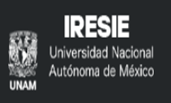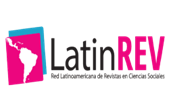The Quota Law in Higher Education under the light of Institutionalism
Decision-making Process of a University in Minas Gerais
DOI:
https://doi.org/10.35699/2238-037X.2022.36885Keywords:
Quota Law, Sociological Institutionalism, Institutional Environment, Decision processes, Public policyAbstract
The main objective of this research is to understand the factors that influenced the decision-making process of a university in Minas Gerais in implementing the Quota Law. This mechanism, instituted in 2012, ensures the reservation of places at Federal Institutions of Higher Education (IFES) for students who have attended high school in public schools, self-identified blacks, indigenous people and people with disabilities. The Quota Law changed the meritocratic institutional format of admission to teaching and began to “promote democratization” in access to federal universities (SOUSA; NASCIMENTO, 2019, p. 774). The theoretical basis of this dissertation is grounded on the Sociological Institutional Theory, with emphasis on the elements of the institutional environment, cultural-cognitive aspects, legitimacy and the decision-making process in the institutional perspective. The topic “Quotas Law” it was supported by public policies, highlighting the implementing agents. The main components of the theory were grouped into a conceptual framework, which configured the conduction of the empirical phase of this research, which is qualitative and descriptive in nature. The case study method was adopted, whose locus of analysis was the Federal University of Minas Gerais (UFMG), cut between 2012 and 2020. Data collection involved two stages: document analysis and the realization of ten interviews with university managers who held positions at the university, within the scope of the proposed cut. For data analysis, they were submitted to content analysis, categorized in line with the conceptual reference scheme, to then present the results. It was found that the institutional environment of UFMG incorporated very important regulations, which provided profound organizational adaptations, which enabled the implementation of the Quota Law to take place in a structured manner. In the decision-making process for implementation, UFMG incorporated regulations into a prevailing cultural-cognitive panorama that favored the incorporation of the mechanism. The process of organizational adaptation to institutional changes is still taking place. In other words, institutionalization remains dynamic with regard to understanding the social context of quota holders and the inclusion of people with disabilities, despite the complications caused by the pandemic. Regarding the contributions of this research, the main one encompasses the social benefit, as it will compose the academy and provide new insights regarding the university decision-making process in the implementation of regulatory elements. It also enabled the incorporation of the institutional perspective into organizational analysis as a relevant proposal to explore macro and micro aspects together.
Downloads
Published
How to Cite
Issue
Section
License
Copyright (c) 2022 Trabalho & Educação

This work is licensed under a Creative Commons Attribution 4.0 International License.
Os autores têm autorização para assumir contratos adicionais separadamente, para distribuição não-exclusiva da versão do trabalho publicada nesta revista (ex.: publicar em repositório institucional ou como capítulo de livro), com reconhecimento de autoria e publicação inicial nesta revista.












